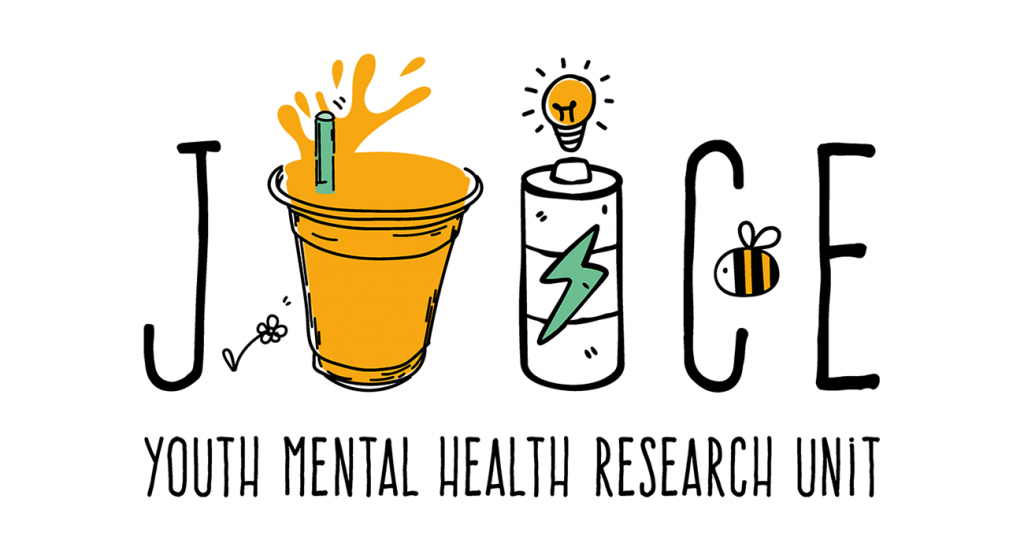JUICE FAQ

We are open to hearing from people who are interested in volunteering with us at JUICE. Feel free to contact us HERE
We currently partner with University of Manchester to offer placements to students. The university will post this placement opportunity on Blackboard, under the placement year folder.
Placement students will be working within the department throughout their third year of university. During placement, students will get insights understanding how research works, the different roles within a research team, and how research findings translate to real life. It offers an opportunity to learn beyond university.
Whilst every placement is unique depending on the projects that we have running in each year, you might be interested to hear about experiences from previous placement students HERE
That’s a really good question and we are excited to see your enthusiasm to be involved in the research world! You can start by looking through the current studies on our website to see if any are right for you HERE
You can also look at other research studies which may be available in your area here: CRN Recruitment Sites
Feel free to contact us HERE if you would like to know more
We are always interested to hear from people with lived experience to join our team. Patient Public Involvement (PPI) involves getting feedback and insights from the public (i.e., someone with lived experience, carers/family members, or those who are interested with the particular study). PPI is essential to our work as it enables us to improve research and ensure that what we do is important for the public. Please look HERE to find out more about PPI at JUICE. Feel free to send us an email about any inquiry.
There are also lots of other organisations which would like to hear from you, take a look at these websites to find out more:
- Young People’s Network | The McPin Foundation
- Youth Advisors | Mental Health Volunteer Programme | YoungMinds
- Empowering Youth Voices: Join the Fearless Youth Panel at CrimeStoppers UK for a Safer Tomorrow | Crimestoppers (crimestoppers-uk.org)
- Acorns Youth Panel – Acorns Project
- Youth Advisory Board Recruitment 2023 – Youth Leads
- Youth Advisory Board | Save The Children UK
- Young People’s Participation at the NSPCC | NSPCC
- Youth Advisory Board | Childnet
- About Us | REACH Board
It is understandable to want to know more about people who might in touch with you or meeting you. Please feel free to read about our staff and see what we look like HERE
Office hours are 9am-5pm, Monday to Friday. Click HERE for contact details
We understand the importance of protecting participant data. Just like your medical records, your research record will be handled with confidentiality. This means that your data will be stored safely in lockable cabinets and can only be identified by unique personal codes. This is all in line with the Good Clinical Practice, and General Data Protection Regulation guidance.
If you have any questions about the storage of your data, please contact the research team or the Data Protection Officer at GMMH via the following email address: informationgovernance@gmmh.nhs.uk
You can access psychological interventions by speaking to your GP or someone who is already involved in your care (a psychologist, a social worker, a teacher). We understand that opening up about your thoughts and feelings might feel daunting, but everyone deserves help and support. We collected resources that may offer guidance on speaking about your mental health.
How To Speak To Your GP About Your Mental Health | YoungMinds
Talking to your doctor – for 11-18 year olds – Mind
Some other useful websites that offer services and resources:
- M-thrive (M-THRIVE OFFER | M-Thrive)
- Our Services | Greater Manchester Mental Health NHS FT (gmmh.nhs.uk)
- Healthy Minds Resource – NHSGGC
- Mental Health Support For Young People | YoungMinds
- Self Help Resources, Websites and Useful Phone Numbers – Royal Manchester Children’s Hospital (mft.nhs.uk)
- Kooth Home – Kooth
Unfortunately, we do not offer any psychological therapy outside of our trials. You can find more information on types of and access to interventions, along with real-life experiences of young people on attending counselling/therapy from the resources below.
How to find therapy or counselling – Mind
Counselling & Therapy | How To Access Therapy | YoungMinds
Receiving mental health support – children and young people – NHS (www.nhs.uk)
You can also find a list of registered cognitive behaviour therapist in the British Association for Behavioural and Cognitive Psychotherapies website.
Childline also offers a one-to-one chat with a counsellor, you can enter the waiting room on their website and a trained counsellor will speak toyou soon
1-2-1 counsellor chat | Childline
If you need urgent support, please go to the A&E department at your local hospital or see your GP (from BART Crisis card)
There are also some other places you can try for support and help which are listed below:
Shout Textline provides platform where you can access free, 24/7 messaging support with a trained volunteer
Shout – UK’s 24/7 Crisis Text Service for Mental Health Support | Shout 85258 (giveusashout.org)
You can also call
- Childline on 0800 1111 (24/7)
- Samaritans: 116 123 (free 24/7 listening support)
- Papyrus HOPELINE: 0800 068 41 41 (24/7)
- 24/7 Mental Health Crisis Helpline | Greater Manchester Mental Health NHS FT: 0800 953 0285 (24/7)
- SANEline: 0300 304 7000 (4pm-10pm, Mon-Sun)
- Mind infoline: 0300 123 3393 (9am-6pm, Mon-Fri)
We appreciate that young people are often supported by lots of different people, often in their own families and it can be important to support you too. This can also mean that family members can also become worried about young people and need help to know where to turn for guidance. As a family member/friend/carer, the National Institute for Health and Care Excellence (NICE) provides range of evidence-based guidance
NICE | The National Institute for Health and Care Excellence
There are also specific guidances for parents and those working with young people
Parents Mental Health Support | Advice for Your Child | YoungMinds
Resources For Professionals Working With Young People | YoungMinds
General guidance can be found here
Children’s mental health – Every Mind Matters – NHS (www.nhs.uk)
Carers, Family and Friends | Greater Manchester Mental Health NHS FT (gmmh.nhs.uk)
All participants have the right to withdraw from a study they have chosen to take part in. This means that you can leave at any point, without giving any explanation.
It might be helpful to speak someone about it if you have any concerns about how we can change aspect of the study to be a better fit with your time/capacity/schedule (e.g. changing what you talk about, member of the team, where you are seen/meeting for assessments). You can contact us through our email, and we will try our best to accommodate you!
You will always be given time to think about the possible benefits or downsides of taking part in a research study. Our research assistants are always happy to answer any further queries you might have and to give you the time you need to make a decision that is right for you. We do however have and end date to when we can consent new participants to a study, so there may a rare case where a person has less time to decide whether or not to take part. A research assistant will always make this clear to you.
The video below provides an outline of research process for children and young people. This is a similar protocol to our department but instead of a research nurse, you will be contacted by a research assistant. We usually offer appointment/sessions at participant’s home address, if they wish to do so.
Take part in research – Sheffield Children’s NHS Foundation Trust (sheffieldchildrens.nhs.uk)
What is it like to take part in a clinical trial?
Participating in research studies does carry potential risks, and it’s important to be honest and transparent about this. Researchers thoroughly assess the possible risks associated with new treatments, but unforeseen risks may still arise. To ensure participant safety, researchers closely monitor their wellbeing and are always available to address any personal concerns.
All research undergoes review by an ethics panel, and participants should be informed of any potential risks. These risks are outlined in the participant information sheet, which should be reviewed carefully. Additionally, participants are encouraged to discuss any concerns with the researchers.
That is a great question! Before conducting a research study, the protocols are reviewed and approved by authorities. This may be a lengthy process as there may be changes in the protocol that needs to be done before it gets approved.
However, these changes are necessary to ensure participant’s safety. Most research studies are funded by the NIHR. Some other possible funding teams include Wellcome and Medical Research Council (MRC UKRI).
We cannot pay people to take part in research as this can be unethical however, we reimburse traveling expenses and compensate people for their time as being able to take part in our research should not cost you any money.
The amount of compensation for a research study will be different depending on how much is involved in taking part e.g. time taken to participate.

This is an interesting one! You can find out about the story HERE
Dissemination is key in publications and research results – think of it as a broadcast. By making sure that the findings are accessible to the public like participants, it allows them to find out more about what they have taken part in and their impact to the world of research! Moreover, research teams can do further investigations on the topic and clinicians can apply them in their practice. Altogether, dissemination process enables us to collectively increase awareness on the latest evidence-based treatments and/or interventions and ways to deliver them effectively.
We believe that dissemination is really important because it allows participants to know more about what they have taken part in. This access also allows other research teams to do further investigation and clinicans to apply them in their practice.
We are always happy to help anyone who would like to make it possible for a young person to take part in research. You can find more information about each studies HERE
Feel free to Contact Us if you have any further questions
It is always really helpful to hear from young people, their families, clinicians and anyone who is interested or involved in young people’s research in mental health about improvements for the team or your experience with taking part in our research.
Please contact us HERE
Once the clinical team has referred you to a research study, you will be contacted by one of our research assistants. In this initial contact, you do not have to decide to be involved in the study straightaway. The research assistant will explain the study in further detail, including the participant involvement throughout the study (e.g. the amount of assessment and follow ups, how long each assessment is). The research study may offer specialist help, such as a therapist, but this varies from one study to another.
You can find out more about the experiences of former participants who were previously referred to our studies here
If you do not wish to take part in the study, do not worry, the referral can be cancelled.
Will be contacted by one of the RAs, do not have to make a decision to be involved in the study straightaway
- Participants involvement will vary from one study to another, but this will be further explained by RAs
- The research study may offer specialist help
- Mention what previous referred participants said about the studies (maybe consider having a separate/additional page just for the “what they say about JUICE”)
- Reassure them that the referral can be “cancelled” if they do not wish to take part in the study
Mental health issues can affect anyone, with around 2 million people in the UK being diagnosed with some form of mental health problem each year. These issues encompass a wide range of experiences, from common worries and stresses to more serious conditions that can significantly impact daily life.
It can be challenging to determine when everyday feelings become a mental health problem. For instance, everyone feels sad, fed-up, or anxious at times, but these feelings become problematic if they start interfering with your ability to cope with everyday activities. Recognizing when this happens is crucial so you can seek support. If you find yourself unable to manage your feelings, visiting your GP can provide the help you need.

